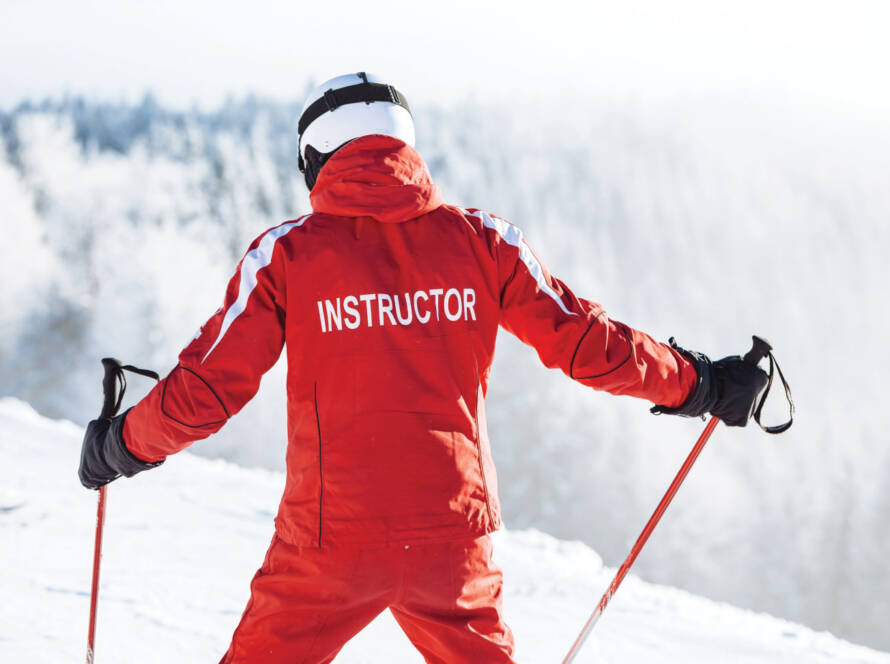When it comes to staging the Winter Olympic Games, weather is always top of mind. Marginal weather conditions during the Winter Olympics can lead to snowmaking challenges, which was the case at both the 2010 Games in Vancouver, Canada, and the 2014 Games in Sochi, Russia.
For the 2018 Winter Olympic Games in Pyeongchang, South Korea, the company behind the snowmaking system for most of the skiing and snowboarding competitions is guaranteeing there will be enough snow.
“TechnoAlpin is very proud to be the main snowmaking supplier for this important event,” said Michael Mayr, the company’s area sales manager for Asia. “This is the result of our long-term involvement in the Korean market and the high investment in research and development during the past years. Our outstanding products and our long experience with fully automated systems will guarantee perfect conditions for the Olympic Games.
“Being trusted for such a big event, where the whole world is watching, is always a challenge, but also a great honor. For us, this is another proof that our innovative and meticulous work is acknowledged by ski resorts all over the world.”
In total, 25 of the 31 skiing, alpine, snowboard and freestyle competitions in Pyeongchang will take place on snow from TechnoAlpin. Marginal temperatures and high humidity can create special challenges for snowmaking in South Korea, especially in lower elevation areas, but Games organizers are confident that TechnoAlpin is up to the task.
“Not many major winter sporting events are held in South Korea,” said Davide Cerato, a snowmaking consultant for the Pyeongchang Winter Olympic Games, following the announcement of TechnoAlpin’s Olympic partnership at the Interalpin 2017 trade fair held last April in Innsbruck, Austria.
“That’s why, when it came to snowmaking, they were looking for a partner with many years of experience and knowledge of the conditions,” said Cerato. “TechnoAlpin took part in a public tender and was selected by the Province of Gangwon. The above-average success of the test events confirms that this was the right choice.”
Mayr says TechnoAlpin installations at 2018 Winter Olympic Games sites proved their power during pre-Olympic testing in 2016 and 2017. “Our system is made to make the snow under very marginal temperatures using the newest technology,” he said. “After the first snowmaking for the test events, we noted that our system exceeded all expectations and we produced the needed snow in much less time than requested.”
Despite the challenges with marginal conditions, Mayr says, skiing and snowboarding are very popular pastimes in South Korea.
“Skiing and snowboarding have a long tradition in South Korea. Ski resorts are open 24 hours, to allow all the employees working shifts at large facilities in Seoul to go skiing after their work shifts,” he said. “This helps a lot to keep it popular.”
Long experience in Korea
A global market leader in snowmaking technology, Italy-based TechnoAlpin has more than 2,200 customers in more than 50 countries. It offers a full management service that covers all phases of snowmaking service, from planning and installation to after-sales service. The company’s wide range of different fan guns and snow lances and the use of custom control software enable the development of individual turnkey solutions for clients.
Yongpyong and Phoenix Park, the two main ski resorts in Pyeongchang that will host the majority of ski and snowboard events during the 2018 Winter Olympic Games, already rely on TechnoAlpin snowmaking systems. Both resorts have upgraded their snowmaking systems over the past two years, relying on the know-how of TechnoAlpin.
“We have very strong partnerships and a lot of experience there,” said Mayr, adding that the company has been involved in the Korean market for almost 25 years.
The first TechnoAlpin snowmaking system was installed at Yongpyong, which will host the giant slalom and slalom competitions for the 2018 Winter Olympic Games, back in 1994. In preparation for the Games, the automated system was modernized and expanded, with updates to the software and the installation of powerful new snow guns that substantially reduce snowmaking time.
“The aim was to make the snow for all the events in less than 200 hours,” said Mayr.
TechnoAlpin was also able to upgrade snowmaking at Phoenix Park, where all snowboard and freestyle skiing events for the 2018 Winter Olympic Games will be held, to a fully automated system in just four months.
According to Mayr, the freestyle events have special snowmaking requirements. “A huge amount of snow is needed for the muggles, half pipes and ski cross. Therefore, we installed many guns on towers, lifts and arms, because the gun is more efficient for the large piles when it is high. For the safety of the athletes, those installations must be removable during the events,” he said.
Mayr says TechnoAlpin, which produces about 5,000 snow guns annually, prioritized the production of equipment for Pyeongchang Olympics in order to successfully meet its delivery commitments.
Together, Yongpyong and Phoenix Park have invested almost $6 million in their snowmaking systems. They each have three fully automated pumping stations and there are now 250 TechnoAlpin snow guns on the two sites. Of these, 150 are TF10 snow guns that were installed specifically for the 2018 Winter Olympic Games.
The TF10 is touted as the most powerful snow gun on the market, with 24 nozzles and eight nucleators that produce high output snow with 16 control settings. “TechnoAlpin has proven, more than just once, that the products are outstanding. Especially in terms of automation, TechnoAlpin is providing the state of the art,” said Mayr.


![[image placeholder]](https://www.snowopsmag.com/wp-content/uploads/2023/09/placeholder@2x-890x664.png)
